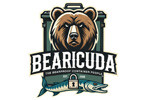Bearproof cans North Carolina
Bears pose challenges for North Carolina Residents.
Bear-resistant cans have proven to be effective in deterring bears from foraging trash cans.
In recent years, Asheville, North Carolina residents have been frustrated with the number of bears present in residential areas. They are making a mess of people's trash cans, not to mention the increased risk of bear/human encounters.

Bears pose challenges for North Carolina residents.
Bear-resistant cans have proven to be effective in deterring bears from foraging trashcans.
In recent years, Asheville, North Carolina residents have been frustrated with the number of bears present in residential areas. They are making a mess of peoples trash cans, not to mention the increased risk of bear/human encounters.
Below is a question showing their frustration and also an excerp from a town spokeman email in response, sharing how their recent bear-resistant trash can program is working.
Question: I just got finished cleaning up the garbage all over my street from a bear and her cubs. I invested in a bear-proof garbage can, but these guys are smart, and they quite easily figured out how to open these cans. Apparently, they knock them over on their side and then jump on top, which dislodges the lock. What can I do to stop them from getting into my trash?
Answer: Technically, no trash cans are "bear-proof." They are, however, usually reliably bear resistant.
The city of Asheville, NC distributed their first batch of 340 bear-resistant carts in January 2020. Another 300 went out in September to those on the waiting list.
“The city has received a lot of positive feedback from bear cart recipients,” Asheville spokeswoman Polly McDaniel said in the city's email.
Bear resistant carts are designed to stay locked until the action of the sanitation truck lifting them overhead to empty them unlocks the lid, emptying its contents into the truck. And they are usually pretty effective. The city acknowledges the cans "are unfortunately not completely bear proof," McDaniel said.
What we need to remember is that bears are wild animals, very strong and often determined when it comes to foraging for urban trash for food.

So, residents are still advised to keep trash carts secure until the morning of collection and to follow Bear Wise practices, such as;
1. Eliminating other food sources, such as bird feeders, and pet food outside of the house.
2. Making sure the cart is not over-packed with trash, and
3. Ensuring that no plastic bags or waste get caught in the latch when closing the lid.
Basically, eliminate the food source, and the bear usually moves on.
In a recent North Carolina Urban/Suburban Bear Study, Asheville area has a large population of bears. The bears are twice as big and are having cubs at half the age of their rural counterparts, according to that story. More than a third of the calls that the N.C. Wildlife Resources receives about bears statewide come from Buncombe County.
In Western North Carolina, there’s an estimated 7,000-8,000 black bears, according to the North Carolina Wildlife Resources Commission.
In short, communities that are in or around bear populated areas need to learn how to live together in harmony. Understanding bears and their natural tendencies in searching for food is a big first step. Implementing practical ways to minimize bear encounters like using bear-resistant trash containers and bear-wise practices of eliminating food sources that attract bears can help keep bears in their natural habitat.


